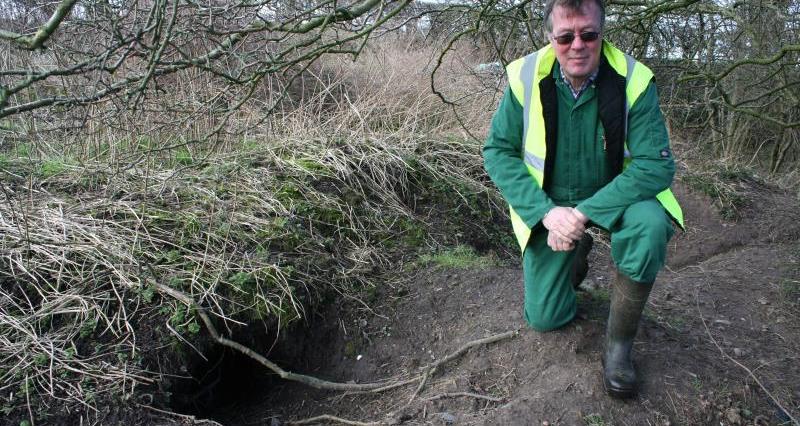Bill Mellor, who farms near Stockport and has not had a bTB outbreak in his herd, set up the survey because of concerns about the slow spread north of the disease through Cheshire over the last 20 years.
Working with Stockport Metropolitan Borough Council – who notified him of any roadkill badgers in the area – Mr Mellor collected 30 carcases which were then sent to the universities of Liverpool and Nottingham’s schools of veterinary medicine for testing for bTB.
Of the 30 collected, eight badgers were shown to be positive for bTB after samples were cultured in the laboratory. Seven of the eight were found to have the same strain of bTB found in a roadkill badger survey carried out in Cheshire in 2014.
Mr Mellor said: “Over the past 20 years bTB has slowly crept north through Cheshire to the point where herds on the border with Greater Manchester are now becoming infected. I set this project up because I believe it is crucial that surveillance of local wildlife is carried out in all areas on the edge of the disease spread like this so we can see exactly how far the disease has spread and what needs to be done to stop it.
“The fact that more than a quarter of the badgers found were shown to be carrying bTB is very concerning for farmers in this area, especially given that the majority of the badgers were carrying the same strain of bTB which was found in the Cheshire roadkill badger survey in 2014. I’m concerned at the sheer number of badgers in the Stockport area.
“The area where I farm is classed by Defra as a bTB low risk area, which means cattle herds are routinely TB tested every four years. But we’re bordered by Cheshire and Derbyshire where there have been regular bTB outbreaks.
“To stand a chance of stopping the spread of bTB in this area, and others like it, we need to know how the disease is being spread – is it through cattle movements, and cattle to cattle contact, or through wildlife?”
For the survey, Stockport Metropolitan Borough Council notified Mr Mellor of any dead roadkill badgers. He was granted a waste carrier licence from the Environment Agency and collected the carcases triple bagged and sealed them, and delivered them to the University of Liverpool together with the necessary paperwork.
Mr Mellor said he welcomed news that Defra is now funding roadkill badger surveys across the whole of the area deemed to be at the edge of the disease spread to try and get a better understanding of where the reservoir of disease is in wildlife.
“By carrying out this kind of surveillance work, as well as fully analysing all the data available about bTB outbreaks in cattle, we will gain a much better understanding of how the disease is spreading and what methods will be most effective at stopping it and eventually eradicating it,” he said.